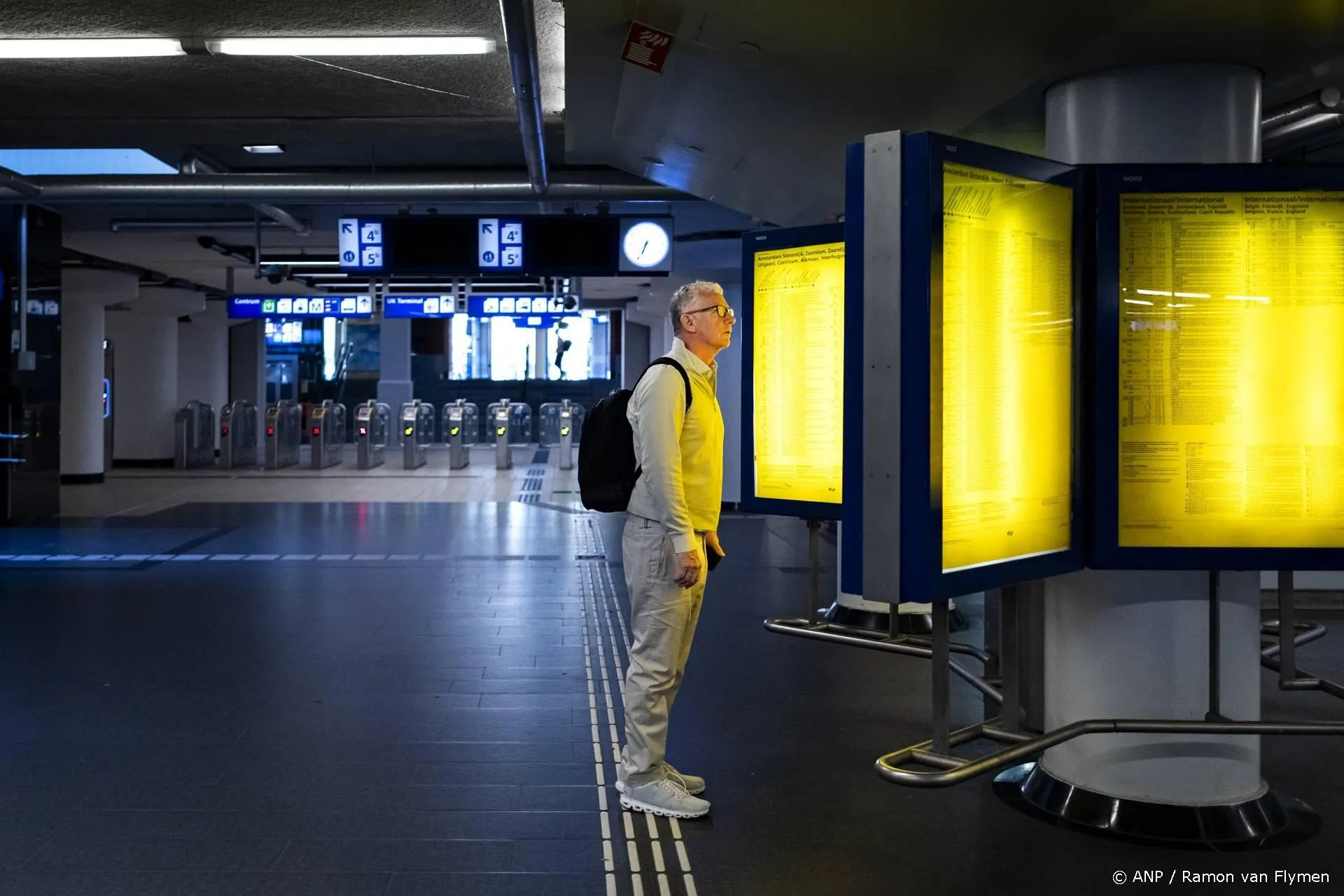Vahrenholt voelde zich bedrogen inzake klimaat
Eerder schonk ik aandacht aan Fritz Vahrenholt, die samen met Sebastian Lüning onlangs een boek uitbracht: Die kalte Sonne: Warum die Klimakatastrophe nicht stattfindet. Het was het populaire Duitse tijdschrift 'Bild' dat daaraan voor het eerste prominent aandacht schonk. Daarmee gooide het de knuppel in het Duitse politiek óh zo correcte hoenderhok. Immers twijfel aan AGW (Anthropogenic Global Warming) wordt in het algemeen als ketterij beschouwd. Dat geldt natuurlijk vooral voor het klimaatcomplex: de talloze groeperingen die zich uit ideële, wetenschappelijke, politieke en/of commerciële motieven daaraan hebben gecommitteerd.
Het is overigens verwonderlijk dat het zo lang heeft moeten duren dat het klimaatsceptische geluid zo duidelijk in Duitsland mocht doorklinken dat het nu ook 'Der Spiegel' heeft gehaald een serieus weekblad, dat enorme invloed heeft op de politieke meningsvorming. Immers in het verleden zijn meerdere klimaatkritische artikelen, rapporten en boeken in Duitsland verschenen. Ook ondergetekende heeft daaraan reeds 5 (!) jaar geleden bijgedragen met zijn artikel: 'Klimakatastrophenzweifel eine Einführung.' in het tijdschrift Novo.
Vahrenholt werd door 'Der Spiegel' geïnterviewd door Olaf Stampf en Gerald Traufetter. Het was een pittig maar fair vraaggesprek, waarbij de auteurs ervan blijk gaven hun huiswerk goed te hebben gedaan. Dat is niet altijd het geval.
Ik pik er een aantal citaten uit. Allereerst de inleiding.
Breaking Global Warming Taboos. 'I Feel Duped on Climate Change'
Will reduced solar activity counteract global warming in the coming decades? That is what outgoing German electric utility executive Fritz Vahrenholt claims in a new book. In an interview with SPIEGEL, he argues that the official United Nations forecasts on the severity of climate change are overstated and supported by weak science.
The articulate utility executive is nervous at the beginning of the conversation. He is groping for words -- not a common occurrence for the practiced provocateur. After all, Fritz Vahrenholt, 62, who holds a doctorate in chemistry, has been a rebel throughout his life. "Perhaps it's just part of my generation," he says.
He is typical of someone who came of age during the student protest movement of the late 1960s, and who fought against the chemical industry's toxic manufacturing plants in the 1970s. His party, Germany's center-left Social Democratic Party (SPD), chose him as environment senator in the city-state of Hamburg, where he incurred the wrath of the environmental lobby by building a waste incineration plant, earning him the nickname "Feuerfritze" (Fire Fritz).
He worked in industry after that, first for oil multinational Shell and then for wind turbine maker RePower, which he helped develop. Now, as the outgoing CEO of the renewable energy group RWE Innogy, he is about to embark on his next major battle. "I'm going to make enemies in all camps," he says. He wants to break a taboo.
"The climate catastrophe is not occurring," he writes in his book "Die Kalte Sonne" (The Cold Sun), published by Hoffmann and Campe, which will be in bookstores next week. He has only given the book to one climatologist, Jochem Marotzke, the director of the Max Planck Institute for Meteorology in Hamburg, to read prior to its publication. Marotzke's assessment is clear: Vahrenholt represents the standpoints of climate skeptics. "A number of the hypotheses in the book were refuted long ago," Marotzke claims, but adds, on a self-critical note, that his profession has neglected to explain that global temperatures will not increase uniformly. Instead, says Marotzke, there could also be phases of stagnation and even minor declines in temperature. "This has exposed us to potential criticism," he says.
Marotzke vergeet erbij te vertellen dat de verschillende klimaatsceptici hiervoor wel verklaringen hebben gevonden en die ook hebben gepubliceerd, láng voordat de stagnatie van de temperatuur zich manifesteerde. Die verklaringen hadden niets met CO2 te maken.
While books by climate heretics usually receive little attention, it could be different in Vahrenholt's case. "His fame," says Marotzke, "will ensure that there will be a debate on the issue." The book is a source of discomfort within Vahrenholt's party. No one with the SPD leadership is willing to comment on the theories of their prominent fellow party member, from former Environment Minister and current SPD Chairman Sigmar Gabriel to parliamentary floor leader Frank-Walter Steinmeier, who was given an advance copy of the book. A lecture Vahrenholt was scheduled to give at the University of Osnabrück in northwestern Germany was recently cancelled.
In Nederland was de situatie gedurende vele jaren niet veel anders. Sommige universiteiten weigerden klimaatsceptici als sprekers. Andere deden dat niet, zoals de TU Delft. Maar dat was ook het thuishonk van Salle Kroonenberg, een bekend klimaatrealist. Maar, eerlijk is eerlijk, na veel soebatten lukte het toch vaak - zelfs in Wageningen, een van de broedplaatsen van het klimaatalarmisme in Nederland. Opvallend was dat het KNMI misschien nog wel het meest liberaal was op dat terrein.
SPIEGEL: Mr. Vahrenholt, in the week before last, you made the surprising announcement that you are resigning as head of RWE Innogy. And now your book "Die Kalte Sonne," in which you deny the climate catastrophe, is appearing. Were you forced to step down because your ideas could damage RWE's new green image?
Vahrenholt: No. My contract would have expired at the end of the year, anyway. Besides, I will continue to be a member of the company's supervisory board for another three years.
Tja, we moeten maar afwachten of dat goed afloopt.
SPIEGEL: You are an electric utility executive by profession. What prompted you to get involved in climatology?
Vahrenholt: In my experience as an energy expert, I learned that the Intergovernmental Panel on Climate Change (IPCC) is more of a political than a scientific body. As a rapporteur on renewable energy, I witnessed how thin the factual basis is for predictions that are made at the IPCC. In one case, a Greenpeace activist's absurd claim that 80 percent of the world's energy supply could soon be coming from renewable sources was assumed without scrutiny. This prompted me to examine the IPCC report more carefully.
SPIEGEL: And what was your conclusion?
Vahrenholt: The long version of the IPCC report does mention natural causes of climate change, like the sun and oscillating ocean currents. But they no longer appear in the summary for politicians. They were simply edited out. To this day, many decision-makers don't know that new studies have seriously questioned the dominance of CO2. CO2 alone will never cause a warming of more than 2 degrees Celsius (3.6 degrees Fahrenheit) by the end of the century. Only with the help of supposed amplification effects, especially water vapor, do the computers arrive at a drastic temperature increase. I say that global warming will remain below two degrees by the end of the century. This is an eminently political message, but it's also good news.
Vervolgens wordt in het interview uitgebreid ingegaan op de rol van de zon.
SPIEGEL: On balance, you predict a global cooling of 0.2 to 0.3 degrees Celsius by 2035. Why such a risky prediction?
Vahrenholt: If you want to revitalize the deadlocked debate, you have to have the courage to name a number. And we derive this number from scientific studies on climate history to date.
SPIEGEL: So your contention that we are wrong about global warming is merely a provocation?
Vahrenholt: No. I mean it very seriously, and I know that dozens of solar researchers agree with me. I am perfectly aware of the defamation I will have to listen to in the near future. The climate debate also has some of the trappings of an inquisition. I'm curious to see which truth ministry will now initiate proceedings against me. Perhaps it'll be the Potsdam Institute for Climate Impact Research, which is headed by Hans Joachim Schellnhuber, an adviser to the chancellor.
SPIEGEL: And what will you do if temperatures continue to rise, after all?
Vahrenholt: Then I'll give SPIEGEL an interview in 2020 and publicly admit that I've made a mistake. But I'm convinced that it won't be necessary.
SPIEGEL: Do you seriously believe that all 2,000 scientists involved in the IPCC are deluded or staying true to the official line?
Vahrenholt: It's not like that. However, I am critical of the role played by the handful of lead authors who take on the final editing of the report. They claim that they are using 18,000 publications evaluated by their peers. But 5,000 of them are so-called gray literature, which are not peer-reviewed sources. These mistakes come out in the end, just like the absurd claim that there will no longer be any glaciers in the Himalayas in 30 years. Such exaggerations don't surprise me. Of the 34 supposedly independent members who write the synthesis report for politicians, almost a third are associated with environmental organizations like Greenpeace or the WWF. Strange, isn't it?
SPIEGEL: Why are you taking on the role of the climate rebel with such passion? Where does this rage come from?
Vahrenholt: For years, I disseminated the hypotheses of the IPCC, and I feel duped. Renewable energy is near and dear to me, and I've been fighting for its expansion for more than 30 years. My concern is that if citizens discover that the people who warn of a climate disaster are only telling half the truth, they will no longer be prepared to pay higher electricity costs for wind and solar (energy). Then the conversion of our energy supply will lack the necessary acceptance.
SPIEGEL: Surveys show that fear of the climate catastrophe has declined. Are you preaching to the choir with your all-clear?
Vahrenholt: The fear mongers are still shaping the political debate. According to the German Advisory Council on Global Change, environmentally minded countries should forcibly bring about reduced consumption for the sake of protecting the climate. This takes us in the direction of an environmental dictatorship. And the fearmongering is also beginning to take effect. When I was in a restaurant recently, I overheard a woman at the next table telling her children that it's wrong to eat an Argentine steak -- because of the climate. That's when I ask myself: How could we have come to this point?
Lees verder hier.
Vahrenholts opvattingen worden niet 100% gedeeld door alle klimaatsceptici. Dat is ook logisch want die kennen geen consensus'cultuur', zoals de aanhangers van de menselijke broeikashypothese. Maar zij gaan wel een eind met hem mee.
Hoe het ook zij, petje af voor de analyse van Vahrenholt, maar misschien nog meer voor zijn courage civil!
Opnieuw valt op dat het een 60 plusser is die de kat de bel aanbindt en niet een rebelse jongere. Dat is ook logisch. Naarmate men ouder wordt, kan men zich onafhankelijker opstellen, omdat men minder beducht hoeft te zijn voor sancties zoals sociale en economische uitsluiting ('Berufsverbote' e.d.), zoals vele jongere klimaatsceptici hebben ondervonden.
Met Vahrenholts bijdrage aan het klimaatdebat zakt het AGW-kaartenhuis weer een stukje verder in elkaar.
Ga verder met lezen
Dit vind je misschien ook leuk
Laat mensen jouw mening weten


